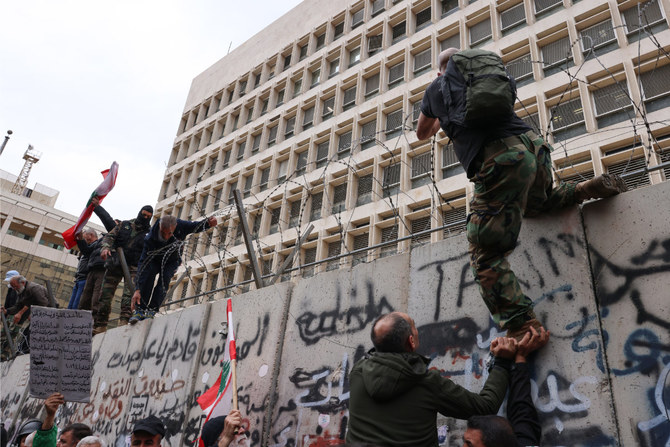NEW YORK: Lebanon “doesn’t need to be the economic basket case that it is,” with the crisis-hit country’s business culture offering a path forward, the US president’s energy security tsar said on Wednesday.
“Lebanese run businesses in every country on the planet,” said Amos Hochstein. “Wherever you go there are Lebanese entrepreneurs, doctors, CEOs and financiers. But they have to leave Lebanon to do it.”
Hochstein, deputy assistant and senior adviser to the president for energy and investment, was addressing the inaugural Middle East Global Summit in New York, attended by Arab News.
Lt. Gen. Douglas Lute, former US permanent representative to NATO, served as moderator for the fireside-style discussion with Hochstein.
The energy security tsar served as lead negotiator of a maritime deal between Lebanon and Israel in late 2022, which saw a resolution that divided the disputed Qana and Karish gas fields between the two countries.
Lute asked Hochstein if that deal could serve as a catalyst for further negotiations and closer ties.
“Everybody told me that it wasn’t possible. I really credit both countries with walking away from the naysayers to do it,” Hochstein said.
“We should always be creating precedents. It (the deal) should be a precedent for other things that we can do.”
Hochstein visited Lebanon in late August to “take the temperature” and understand the potential for further negotiations with Israel, which the US has encouraged across the region.
He also visited Saudi Arabia in June as part of a US bid to encourage normalization with Israel.
He said it is “imperative” for Lebanon to “have civility” so that international businesses can operate securely in the country.
“After 10 years of talking about why Lebanon is the only Mediterranean country without (gas) exploration — and everybody sounds like a broken record: ‘It’s because multibillion-dollar companies don’t invest in areas that could go to war’.”
But Hochstein said: “We can settle the conflict. Now it’s secure. There are already other interests, there’s already job creation, and there are already investments in Lebanon.
“That’s the message. Lebanon doesn’t need to be the economic basket case that it is. And I’m using harsh words but somebody’s got to wake up, and a lot of people in Lebanon need to wake up and say, ‘This is a disaster.’ If the reform agenda is addressed, then I think for Lebanon the sky is the limit.”
Hochstein was asked about the recent signing of a deal between the US, the EU and other countries, including Saudi Arabia, to commit to the creation of an economic and digital corridor from the Indo-Pacific region to Europe.
He said: “Ports from India … will connect to the UAE, and connect north via Saudi, and then via rail to Greece.”
Hochstein praised the proposal as highly efficient and as making it possible to “move goods in a much faster way” around the world.




















